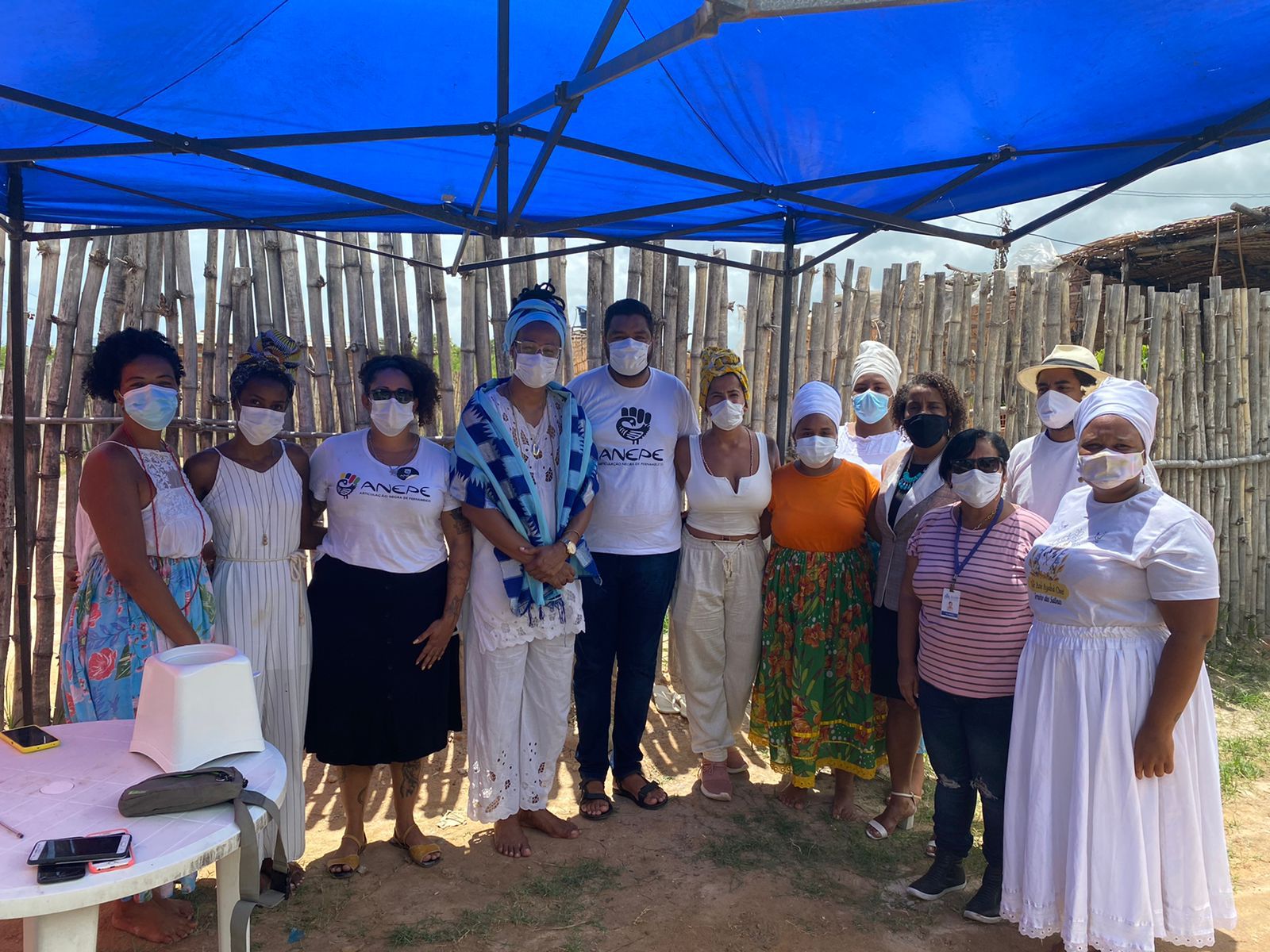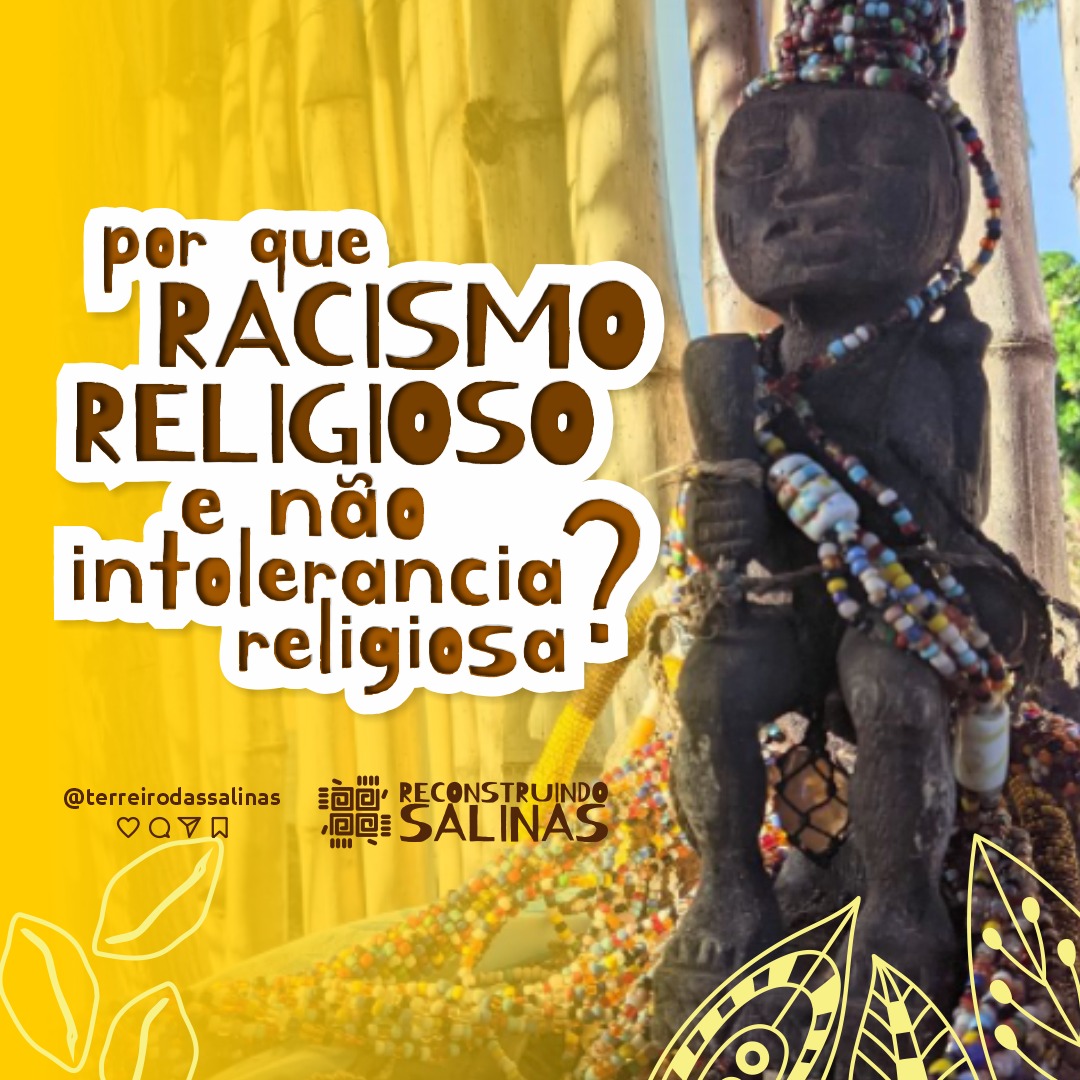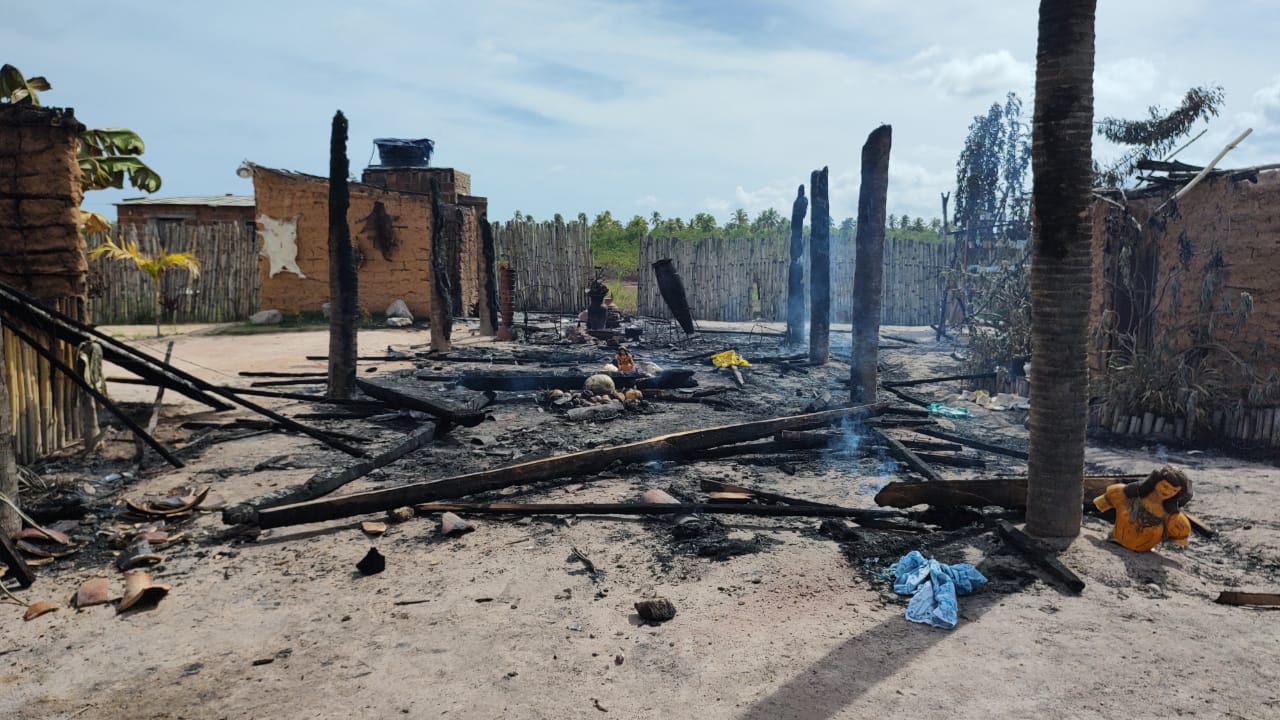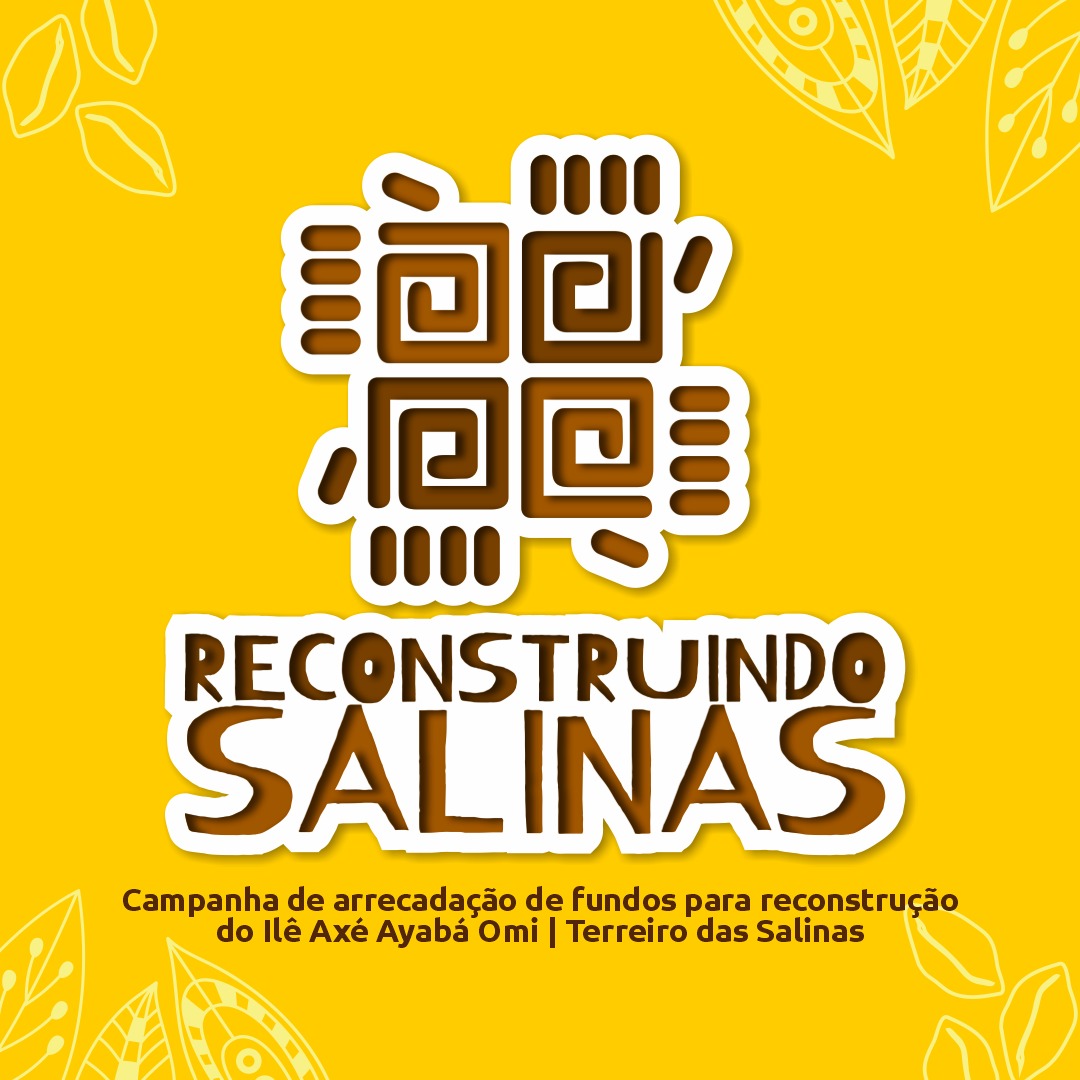Social movements unite to rebuild burnt-out terreiro in Pernambuco
Supporters of African-based denominations are often targets of violence and religious intolerance


Credit: Disclosure
By: Eduarda Nunes / Favela em Pauta – Lupa do Bem
In Pernambuco, the house of Axé of Jeje-Nagô tradition Ilê Axé Ayabá Omi, also known as Terreiro das Salinas, started the year with its sacred space being burned down. The Oxé project, which provides legal and psychosocial advice for cases of racism in Pernambuco, together with the Black Women’s Network, the Women’s Forum and the Black Articulation created a working group to build a fundraising campaign for the reconstruction of Terreiro das Salinas, which burned down on the first day of the year.
Due to the urgency to rebuild Casa de Axé and also due to the creation of false fundraising campaigns for this purpose, Terreiro das Salinas had the support of the aforementioned organizations to launch its own. In addition to the financial part, the Reconstruindo Salinas campaign has an educational and communicational character on religious intolerance.

Afro and indigenous religions have always faced difficulties to maintain themselves, resisting throughout the country’s history. Even cultivating a relationship of exchange, respect and solidarity with the surrounding community, centres of African-based religions and their faithful are still the target of violence, whether physical, material or moral.
The Terreiro das Salinas
Located on the south coast of Pernambuco, in the municipality of São José da Coroa Grande, Terreiro das Salinas, overseen by Babalorixá Lívio Martins, was installed in August 2018, and since then has nurtured a relationship of respect and care with the surrounding population. Some of the jobs that were regularly carried out by the priest and the children of the house were school tutoring and distribution of basic food baskets, which were received through the Tem Gente Com Fome campaign.


During these three years in operation, Casa de Axé had its activities interrupted by the police three times. In all of them, the authorities claimed that the terreiro had been denounced by the Law of Silence – which sets limits and times for events with loud music. On the three occasions, the faithful created and found ways to adapt to continue with religious activities, within the limits of the law and good coexistence. In addition, members of the house were also targets of offence and provocation by some neighbours.


Intolerance or religious racism?
Brazil is made up of just over 214 million people. Of them, 50% profess their faith through Catholicism, 31% through Protestantism and only 2% through religions of African or indigenous origin. According to Dial 100, the National Human Rights Ombudsman that receives complaints of religious intolerance, in 2020 there was a 42% increase in cases of violation of the right to the faith of adherents of African and indigenous religions compared to 2019. 2018, the data is even more worrying: there was a 132% increase in the number of cases of religious intolerance.
In 2022, it will be 15 years since the establishment of the National Day to Combat Religious Intolerance. January 21 was chosen because it also marks the day of the death of Mãe Gilda, a babalorixá from Bahia who was attacked numerous times – verbally and physically – by fundamentalists of the Universal Church of the Kingdom of God. Her death was due to a massive heart attack after seeing her image linked to false information about her religion in the newspaper of the same institution.
Religious intolerance aimed at religions of African and indigenous origin masks the prejudice extended to religious manifestations that these black and indigenous populations developed. More and more, adherents, priests and admirers of these religions call attention to the fact that the term religious intolerance is not the most correct for these situations, but rather religious racism.
How to follow and support


All content related to the reconstruction of Terreiro das Salinas is published on Instagram. It is possible to support the initiative through online crowdfunding and also by payment via Pix.


